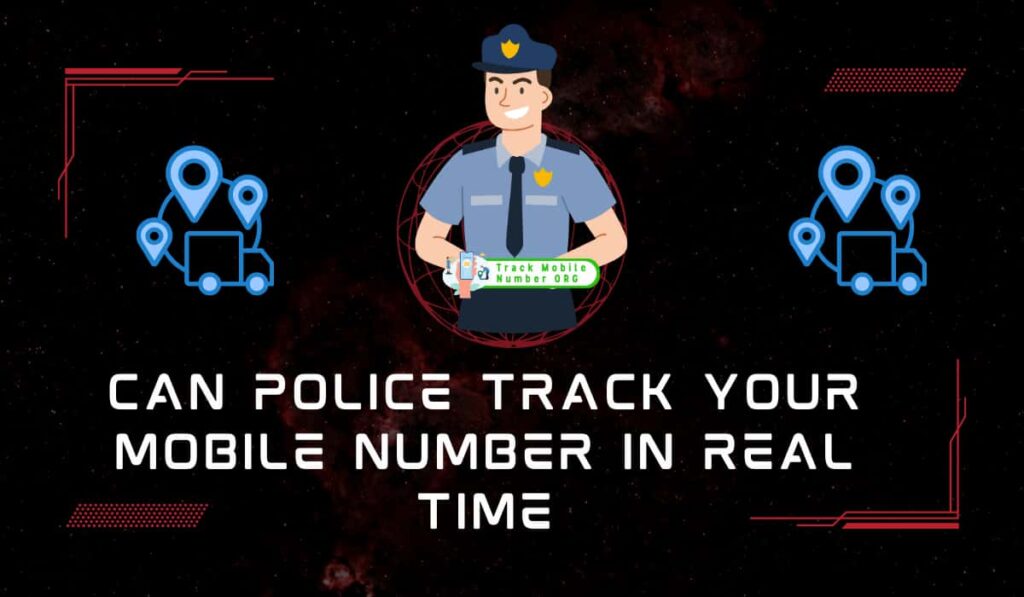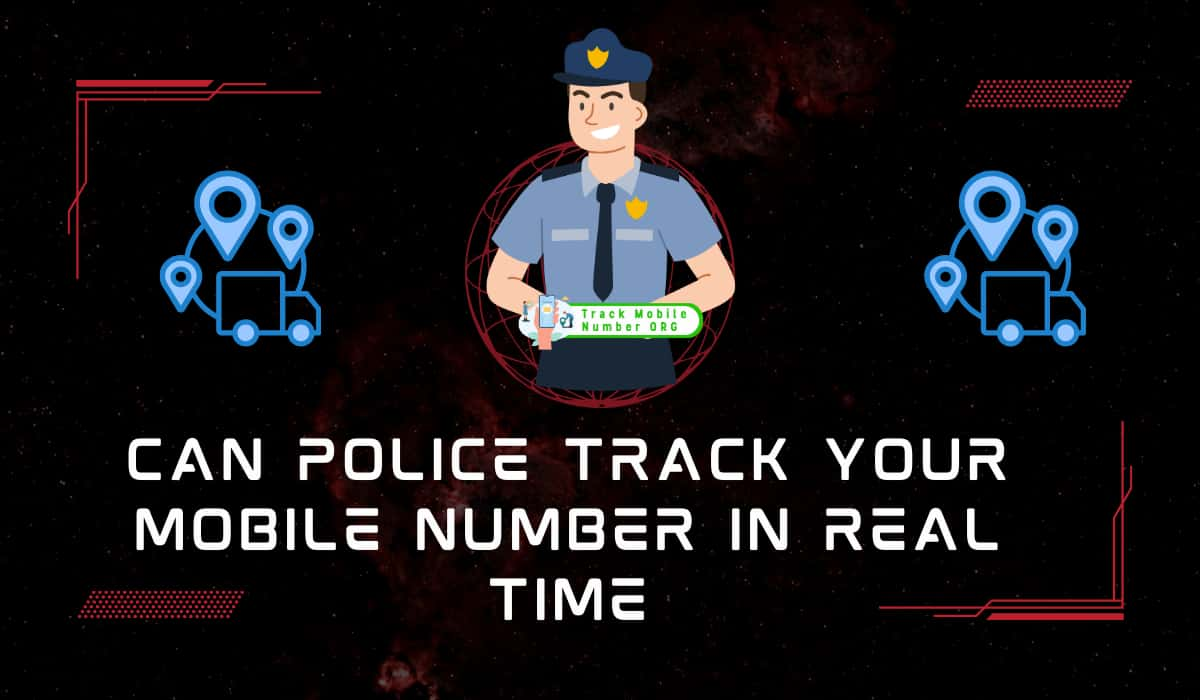In today’s digital world, our mobile phones are more than just communication devices. They contain our personal information, track our movements, and connect us to the world. But with these conveniences comes the question of privacy: Can the police track your mobile number in real time?

In this post, you will learn how to track your mobile number, under what circumstances the police can track your mobile number, the methods they use, and what you can do to protect your privacy.
How Mobile Tracking Works
Mobile tracking is a process that allows authorities to find the location of a mobile device using various technologies. Every mobile phone is linked to a unique mobile number, which is tied to the SIM card inserted in the device.
When your phone connects to a mobile network, it communicates with nearby cell towers. The towers provide the network to route calls, texts, and data to your device. This constant communication with cell towers is what allows your location to be tracked.
Your mobile number and the device’s IMEI (International Mobile Equipment Identity) number play important roles in tracking. While the mobile number is linked to the SIM card, the IMEI number is a unique identifier for your device. Both can be used by authorities to track your phone’s location.
Can Police Track Your Mobile Number in Real-Time?
Yes, the police can track your mobile number in real time, but this is usually done under specific legal circumstances. With a Real-time tracking process, police can monitor the location of a mobile device as it moves and they can track the movement minute by minute.
Legal and Technical Aspects:
To track anybody in real-time by the police, it requires a court order or warrant, especially in countries like India, where privacy laws are in place to protect citizens. However, in emergency situations (For eg. during the investigation of a serious crime or when a person is missing), police may be granted permission to track a mobile number without prior approval.
Scenarios Where Real-Time Tracking is Used:
- Criminal Investigations: Police may track suspects in real time to gather evidence or prevent criminal activities.
- Missing Persons: In cases of missing persons, real-time tracking can help locate the individual quickly.
- Emergency Situations: During emergencies like kidnappings or terror threats, real-time tracking is required for quick response.
Cooperation Between Police and Mobile Network Operators:
To track a mobile number, the police need to work closely with mobile network operators. These operators give access to the data required to pinpoint the location of a device. When requested by the authorities and with the necessary legal backing, they provide the police with the information needed to track a mobile number in real time.
Methods Used for Tracking
Here are some common methods that are used by the police to track a mobile number in real-time:
- Cell Tower Triangulation:
- This is a common method where it uses the signal from the mobile phone to calculate its distance from multiple cell towers. By measuring the time it takes for the signal to travel to each tower, the police can triangulate the phone’s location. Although this effective method is commonly used, its accuracy depends on the density of cell towers in the area.
- GPS Tracking:
- GPS tracking uses satellite signals to determine the precise location of a device. Many modern smartphones are equipped with GPS chips to accurately predict the location. However, the phone must have a clear view of the sky and the GPS must be enabled.
- IMEI Number Tracking:
- The IMEI number is a unique identifier for each mobile device. Even if the SIM card is changed, the IMEI number remains the same. Police can use this number to track the device, especially if it’s stolen or used in criminal activities.
- Stingray Devices:
- Stingrays, also known as cell-site simulators, are devices that mimic cell towers. When a mobile phone connects to a Stingray, it can capture data such as location and communication details. This method is highly controversial due to privacy concerns, as it can also capture information from nearby phones not targeted by the police.
Legal Considerations and Privacy Issues
In India, mobile tracking is governed by laws that aim to balance security needs with privacy rights. The Information Technology Act, 2000 and other related laws regulate how and when tracking can occur. As I already said, police need a warrant to track a mobile number, unless it’s an emergency or related to national security.
Privacy Concerns:
While tracking are needed for safety and crime prevention, it also raises strong privacy issues. Unauthorized tracking or misuse of tracking technology can lead to violations of personal privacy. Citizens need to be aware of their rights and the legal boundaries within which authorities operate.
Limitations of Real-Time Tracking
Despite its effectiveness, real-time tracking has some limitations:
- Accuracy Issues: In areas with few cell towers or poor GPS signals, the accuracy of tracking can decrease.
- Device Settings: If a phone’s GPS is turned off, or if it’s in airplane mode, tracking becomes more challenging.
- Legal Constraints: Police must go through the complex legal processes to gain access to tracking information, which can delay their efforts.
Common Scenarios Where Police Use Mobile Tracking
Mobile tracking is most commonly used in the following scenarios:
- Missing Person Cases: To locate individuals who have gone missing, especially in cases where time is critical.
- Criminal Investigations: To monitor suspects, gather evidence, and prevent criminal activities.
- Emergency Situations: In cases of kidnapping, natural disasters, or terror threats, real-time tracking can save lives.
How to Protect Your Privacy
If you are concerned about your privacy, there are steps you can take to protect yourself:
- Use Strong Passwords: Ensure your phone is locked with a strong password or biometric authentication.
- Encrypt Your Data: Use encryption to protect your communications and personal data.
- Be Cautious with Permissions: Only allow apps to access your location when necessary.
- Monitor Your Mobile Number: Be aware of who has access to your mobile number and avoid sharing it unnecessarily.
Conclusion
While the police can track your mobile number in real time, it is usually done under specific legal circumstances and for legitimate reasons like criminal investigations or emergencies.
If you know and understand how mobile tracking works and are aware of your rights can protect your privacy while recognizing the importance of this technology in maintaining public safety.
As technology continues to evolve, the balance between security and privacy will remain an important consideration for both authorities and citizens.


